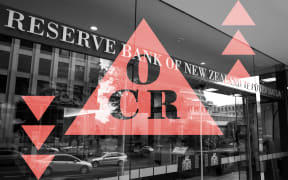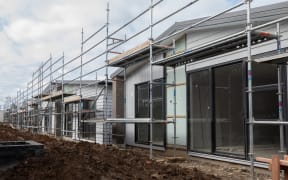
All of the latest forecasts are above the Reserve Bank's February expectation of 3.8 percent. File photo. Photo:
Annual inflation looks set to cool further, but the numbers are still set to come in hotter than the central bank's expectations.
The financial market consensus is for the consumer price index to have risen 0.7 percent in the first quarter, bringing the annual rate down to 4.1 percent from 4.7 percent, with forecasts ranging for an annual rate of between 3.9 percent and 4.4 percent.
The forecasts were all above the Reserve Bank's (RBNZ) February expectation of 3.8 percent.
ANZ said sticky domestic prices - the non-tradable inflation of rates, rents, and insurance - would likely remain strong, while imported inflation would also be stronger than expectations.
ANZ economist Henry Russell said underlying inflation pressures appeared to be persistent.
"We expect non-tradable inflation rose 1.3 percent quarter-on-quarter (5.5 percent year-on-year), above the RBNZ's forecast of 1.1 percent q/q (5.3 percent y/y)."
Russell said domestic driven inflation had continually come in stronger than the RBNZ had expected since the central bank halted its rate hikes in May.
"However, weakness in activity and the emergence of spare capacity across the economy, particularly in the labour market, should be sufficient for the RBNZ to tolerate near-term strength, given our assessment of a pipeline of domestic disinflation ahead," he said.
ANZ expected tradeable inflation - or imported inflation - to be "well above the RBNZ's forecast" of -0.8 percent quarterly and 1.5 percent annual growth.
"[It is] still weak as the post-Covid supply-side normalisation continues. However, with renewed inflation risks from rising commodity prices and shipping disruption, disinflation progress must transition to being led by domestic and services inflation," Russell said.
Kiwibank senior economist Mary Jo Vergara said inflation would likely return to within the RBNZ's 1-3 percent target by the September quarter.
She said domestic inflation had peaked but continued to fall at a "frustratingly slow pace".
"And the ripple effects of migration adds upside pressure, especially when it comes to housing. The surge in migration continues to drive rents, which are estimated to have jumped around 1.1 percent over the quarter.
"Rental inflation continues to creep higher. Annually, rents are running at around 4.6 percent - high above the circa 3 percent pre-Covid rates. A continued slowdown in home construction costs will likely provide some offset. Cost pressures remain strong, but are easing," Vergara said.
The RBNZ said in its latest monetary review last week that inflation remained stubborn in some sectors, requiring interest rates to stay high, but it was confident it would be back in the 1-3 percent target band by the end of the year.






